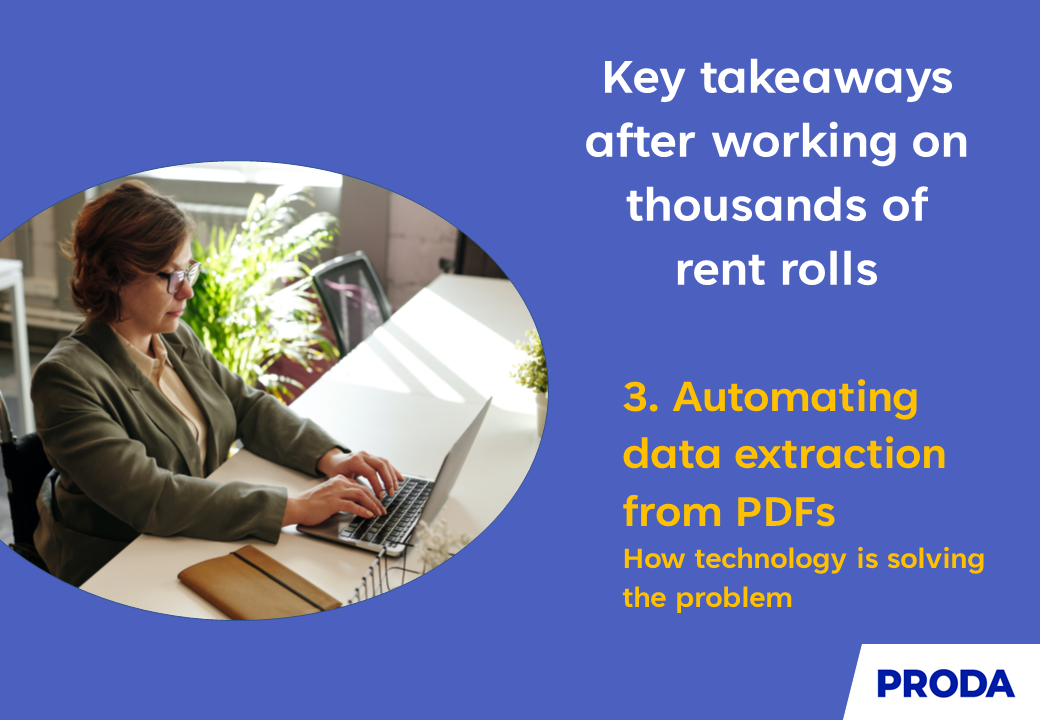– A Blog Series By Proda
We’re back with the fourth blog post in our current blog series: PRODA’s Powerful Women of PropTech (#PWPT). This week, we spoke to Sammy Pahal, Board Member and Managing Director of the UK PropTech Association (UKPA).
We’re thrilled to be back this week, as we feature Sammy Pahal in our ongoing blog series. If you missed any of the previous posts in the series, you can catch up on them, here. Sammy is Board Member and Managing Director of the UK PropTech Association (UKPA). The UKPA is a not-for-profit membership organisation, at the forefront of driving PropTech innovation in the UK.
Having been with the Association for a number of years; working to bring PropTech members together from all areas of the industry, Sammy brings a great deal of insight into the wider PropTech community. So, we spoke to her about her perspective on women in the PropTech sector and delved into what her personal experiences have been like, over the years. Read the full interview below.
MV: Can you tell us a little bit about what your professional journey has looked like, getting to where you are today, as Board Member and Managing Director of the UKPA?
SP: So straight out of uni, I worked for Ordnance Survey for 5 years. I worked in various roles but they were mainly focused on the land and property sectors. My roles involved building relationships with technology partners and a few of those included PropTech companies, although I wasn’t really familiar with the term ‘PropTech’ at the time, or until I was introduced to the UKPA, really. I was introduced to the founder of UKPA when it was all just getting off the ground in 2017. Eddie was looking for someone to take on the task of building new memberships, which is where I came in.
Having been in my last company for 5 years at this point, I was looking for a new challenge and wanted to move to London too, so I was fortunate that this opportunity with UKPA came up. It was certainly very different to what I was used to. Working in a start-up means you have no real structure or processes in place and you’re left to your own devices. There was no tried and tested approach and I really had to adapt and learn along the way. I went from a company of 1000, to essentially just 2 people; me and the founder. So, I had to dive straight in. I was the Head of Memberships when I joined and gradually took on more responsibility as the company grew, until I was promoted to Managing Director by our board of directors and now I sit on the board as well.
MV: What does a ‘typical’ workday look like for you, at UKPA?
SP: My day can be quite varied, it can include anything from business strategy, business planning, account management, talking to our members, business development strategy, market research to admin! With there only being two of us in the company working full time right now, I still have to get stuck in and manage all kinds of processes.
This means everything varies from day to day, and what I’m learning now is to split up my week and organise myself in a way where I keep meetings and calls to take place over a few days, and then the remaining days are where I can just focus on the task at hand and give it my full attention. You constantly have to learn and see what works best for you until you find a balance.
“PropTech companies are in quite a unique position. The founders that are running start-ups or scale-ups really have the opportunity to build their business from the ground up, with diversity at the forefront. “
MV: Having been a female leader in the PropTech sector for a number of years, do you believe a shift is taking place, towards more females in senior positions in the PropTech space?
SP: I think there is certainly more of a shift in PropTech, maybe more so than Property. I think that is because PropTech companies are in quite a unique position. The founders that are running start-ups or scale-ups really have the opportunity to build their business from the ground up with diversity at the forefront. From speaking to our members directly, I know it is something that they are conscious of when they are hiring for new positions. They want to have a diverse workforce, they understand the importance of it and they want to make sure they have that instilled in the company culture straight away.
That said, it is not without its challenges. There are still fewer women applying for jobs in PropTech and when it comes to the women that are already working in the industry, they are not necessarily putting themselves forward for opportunities. This is also evident with industry events and the lack of women going for speaking opportunities. This is something we struggle with as an association, we want to make sure that we have a diverse panel for every event. we’re always very aware of this, and proactively seek out the fantastic women in the industry, but it’s not always possible if women are not putting themselves forward.
This is something that needs to be looked at, the first step is getting companies to take more responsibility. Equally, we need to do more to encourage women to go for these jobs and speaking opportunities. I believe, there’s a fundamental difference between the approach men and women take towards these kind of things. There’s research which shows that a man will apply for a job if they believe they meet 60% of the criteria, whereas women will only apply for the job if they believe they meet 100% of the criteria. I think the same applies to speaking opportunities – women feel they need to be experts on a topic to put themselves forward.
Therefore, we need to do more to break down this barrier and challenge beliefs. Another possible way to tackle this issue is for those that are asked to be on panels to nominate and encourage a female from the industry, or a colleague, to take their place.
MV: Do you feel any pressure as a female leader in the PropTech industry, particularly where there is such a small number of females in senior positions?
SP: I do feel some pressure, to be an expert in every area of the industry for one, which is of course impossible, and to be on top of my game all the time. I think is part of our make up as women! It can also be daunting to participate on panels and represent. However, I know as someone who organises events, how important it is, so I try to push myself even when I’m not comfortable.
I think you have to just go for it and prepare as much as you can. My moto is if you’re not sure how to do something, say yes anyway, and learn how to do it after. I would also say competition for airtime in the industry is something to also consider. We tend to have the same people talking about the same topics and being more vocal and opinionated than others. These are all very knowledgeable people. However, as women, we need to speak up more and have more of a voice, even if we don’t feel like we know the topic inside out. The chances are, we always know more than we think!
MV: What is the biggest challenge that you have faced, if any, as a female in the PropTech industry?
SP: I’m in quite an interesting position, where I’ve been given this opportunity in the UKPA, and have always had lots of support internally, everyone at the UKPA have always been very supportive so, I’ve never really felt any different as a woman. I feel I’m quite lucky but I also recognise that others may not have had the same experience. For me personally, my challenge has come mainly with my age.
I remember when I was just starting out in my career I had a very supportive manager who pushed me to lead, but I’ve also had managers who hadn’t been so encouraging and have suggested I may be too young or inexperienced to lead on a project. Thankfully, by that point I’d had enough confidence from my first manager, to be able to fight back on that but in the past, certainly, being young has sometimes affected how I’ve been treated. A managers role is crucial in empowering their teams, and particularly supporting women in the industry.
MV: The power of PropTech is undeniable, and the industry is considered one of the fastest growing in the world. When the world overcomes the current uncertainties we are all facing together, what do you believe the future will look like for PropTech?
SP: Generally speaking, I think it will be quite positive. I know its been quite a challenging time for some of our members; particularly those waiting for funding or on the cusp of getting their investment through, but those that managed to ride this wave out and come out of the other end, I think, will be in a positive position. Attitudes towards PropTech have changed over the years, and each year positivity towards PropTech increases. Around 95% of real estate companies now have someone responsible for digital innovation, and companies are now aware of what PropTech they should be adopting.
Right now, the process of adopting tech in real estate is really expedited. Companies have no choice now, but to use PropTech to keep their businesses running and this has sped up digital transformation for companies. So, where previously some barriers to adoption have been internal processes, some of this is being removed now. People are feeling a sense of urgency to remove hurdles. So, I’d like to see that continue once we’re out of this. Time has taught us that the world is changing, and we need to get comfortable with being uncomfortable.
“Companies have no choice now, but to use PropTech to keep their businesses running and this has sped up digital transformation. Time has taught us that the world is changing, and we need to get comfortable with being uncomfortable.”
MV: What excites you the most when you think of the new future of PropTech that we are heading towards?
SP: One of the things I’ve always been quite passionate about is the use of PropTech much wider than the commercial use. This includes using PropTech to address national or global challenges that affect us all, like climate change. PropTech can be used to increase the energy efficiency of a building, this affects us all and plays a huge part in the global climate crisis. In this country, we also have a housing shortage and a housing affordability crisis. PropTech helps both those things and can help speed up process of construction and the buying and selling process, making properties much more affordable, which is exciting.
PropTech potentially has the opportunity to also improve our mental health, as well as our physical health. We can now use technology to monitor air quality in a building and if we were to find the air quality to be poor, it would force building owners to do something about it. This means further health benefits for us and it’s exciting to think about all these benefits of PropTech, that go much wider than the commercial benefits.
MV: Finally, what advice would you give to any young women or women in general who may be considering a career in PropTech, but feel there may be a barrier due to preconceived notions regarding gender?
SP: The most important thing for PropTech’s is to find good talent; It is so hard to come by good talent and it doesn’t matter whether you’re male or female to them, they just want talented people in their companies so focus on your talent. Focus on what makes you someone that can be valuable to an organisation and emphasize that.
Men and women take a very different approach to this, men are more likely to almost over ‘sell’ themselves, whereas, women don’t tend to do this. We need to be bold, and shout about ourselves and what we can do. Be confident in your own abilities and the value that you can bring. PropTech’s in particular want talented and diverse teams. So dive right in and seize the opportunity and if you do, there will be people there to support you.
***
Written by Manisha Veja, Featuring Sammy Pahal.
A special thank you to Sammy for taking part in our blog series. If you are interested in featuring in the series please email mveja@proda.ai.
We will be back next week with another addition to our blog series, as we continue to interview the inspiring women both internally at PRODA, as well as externally. In the meantime, for the latest news and updates follow us on Twitter and LinkedIn.




